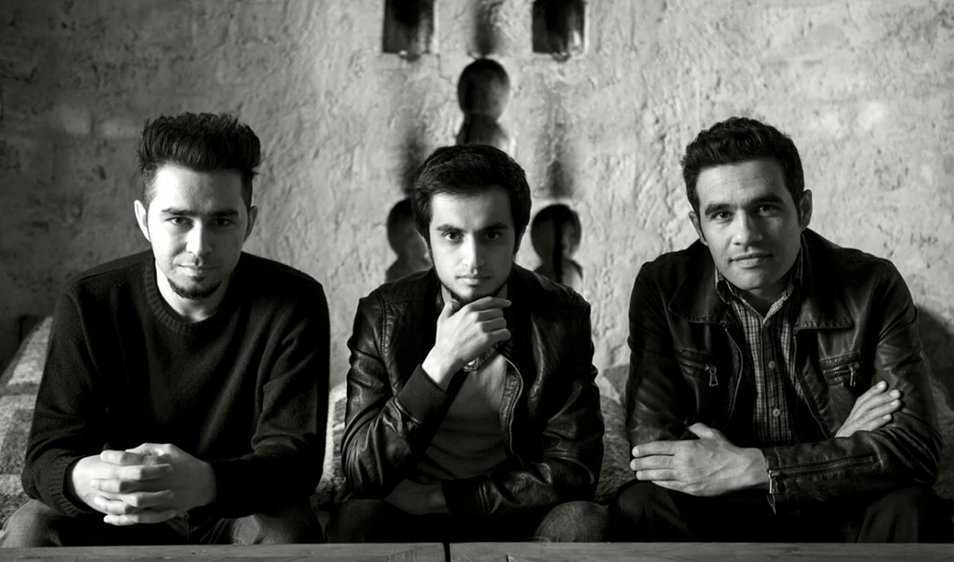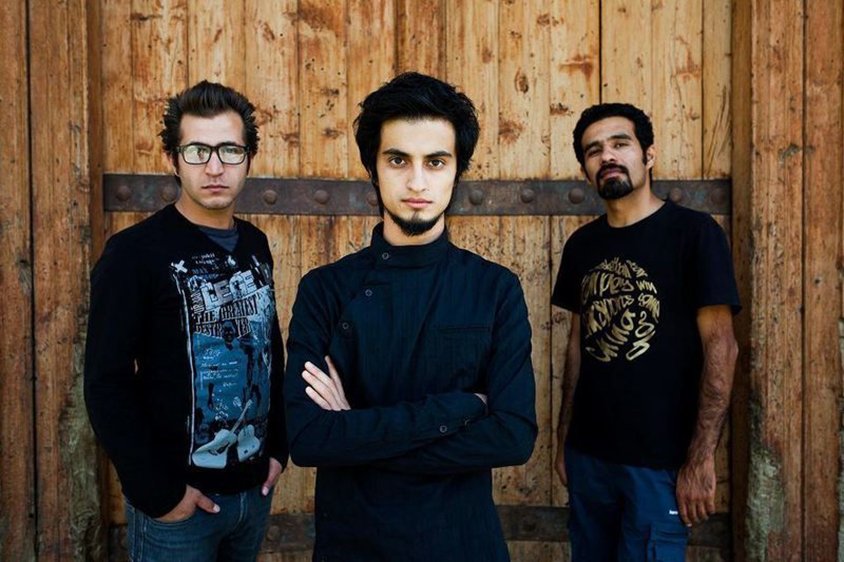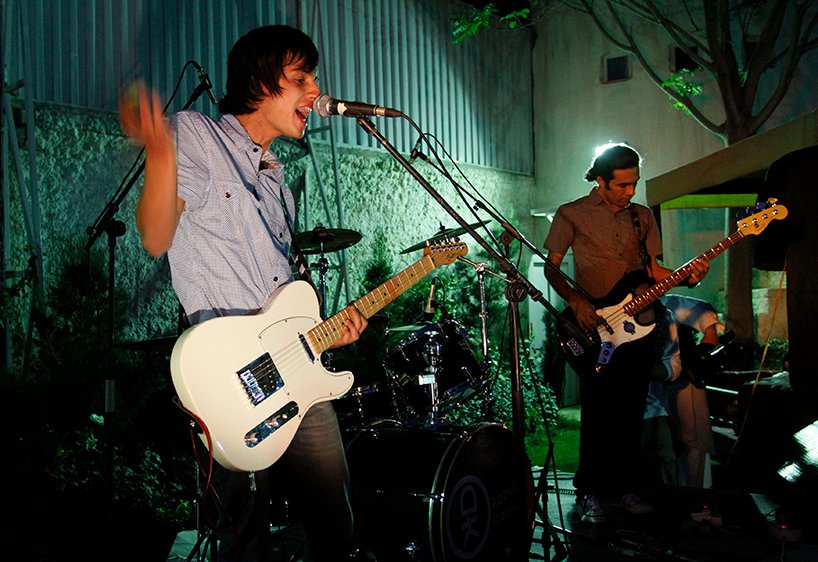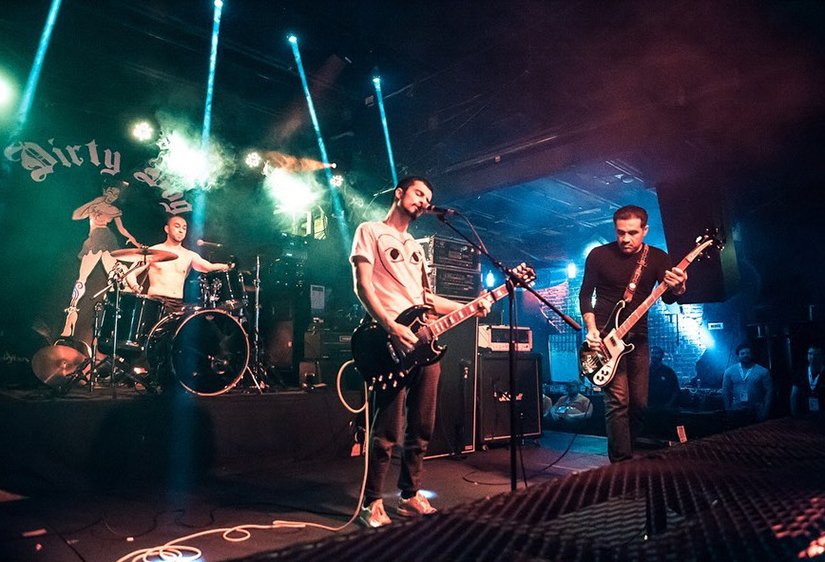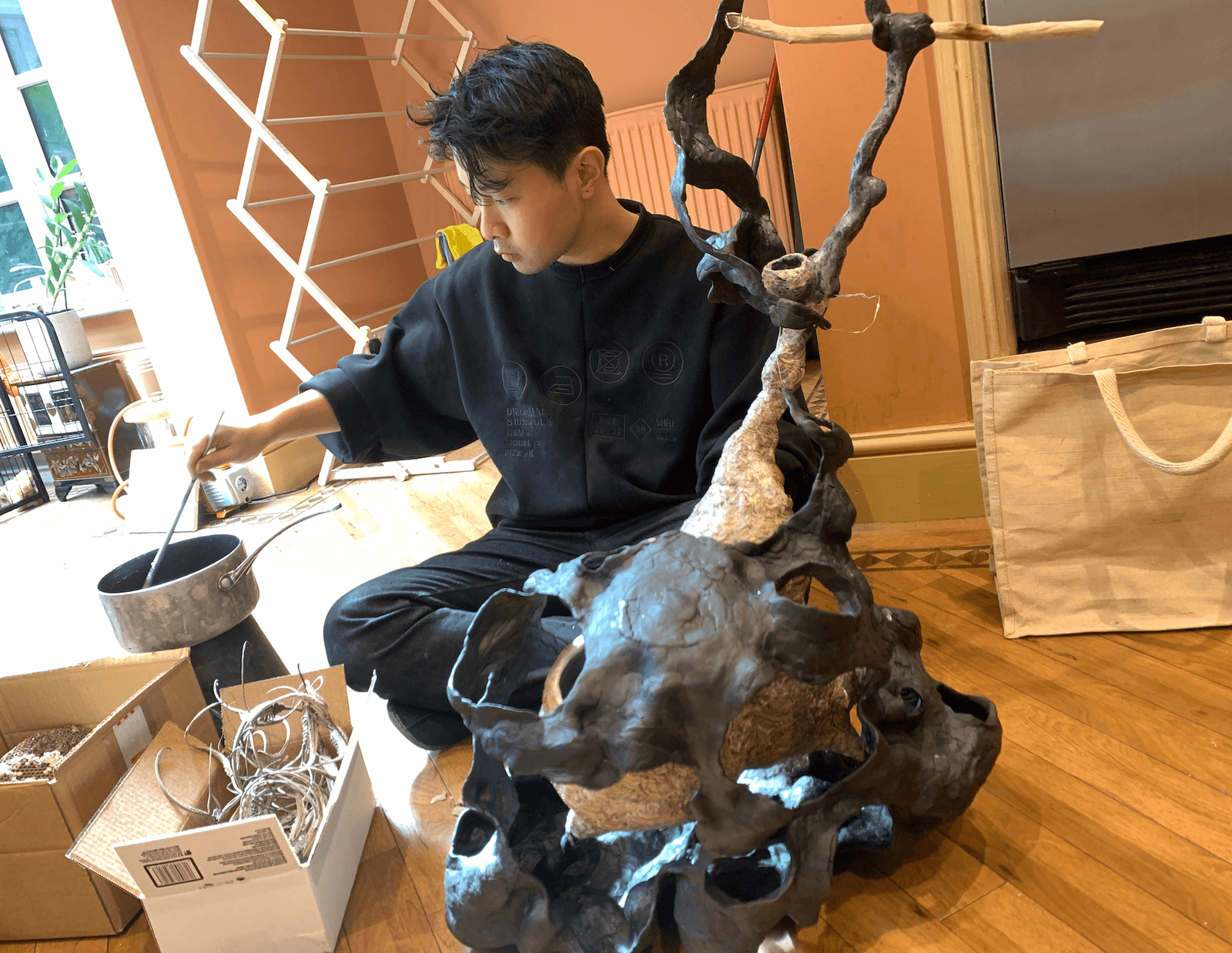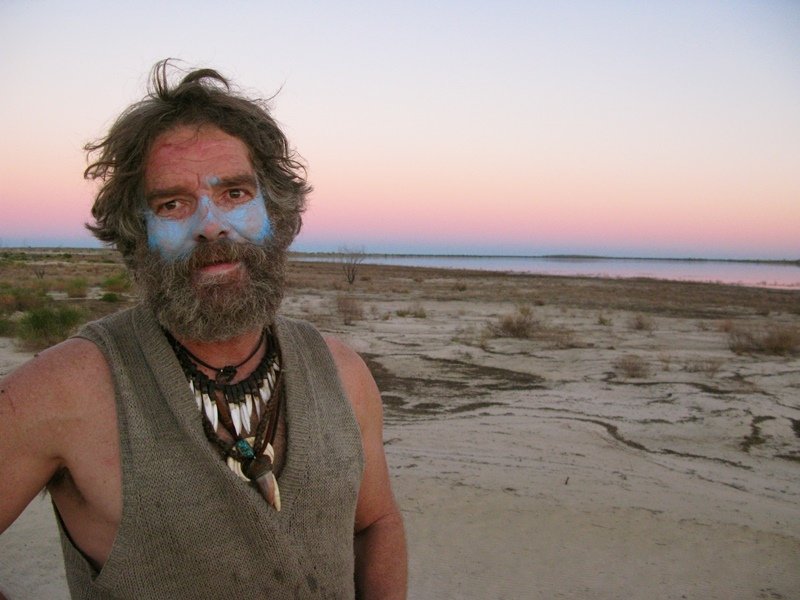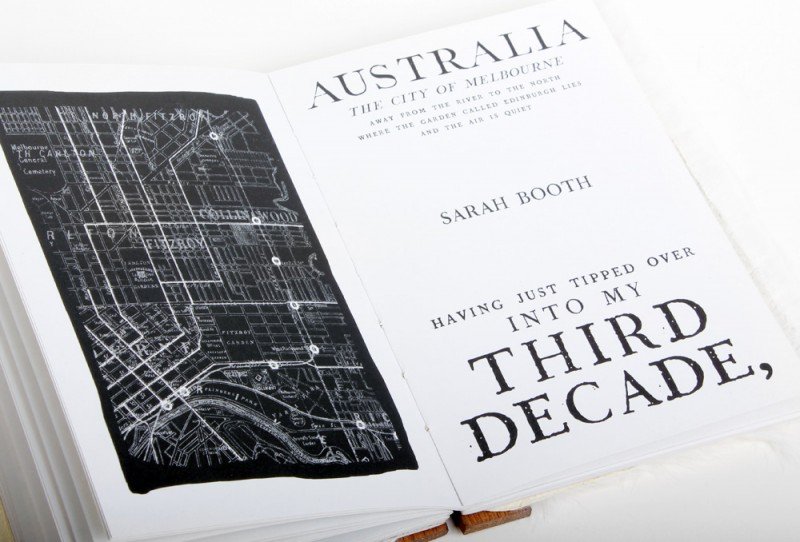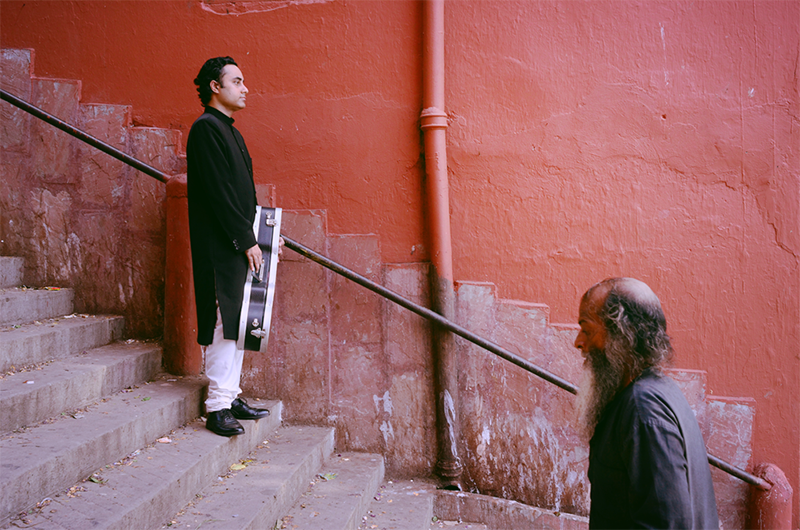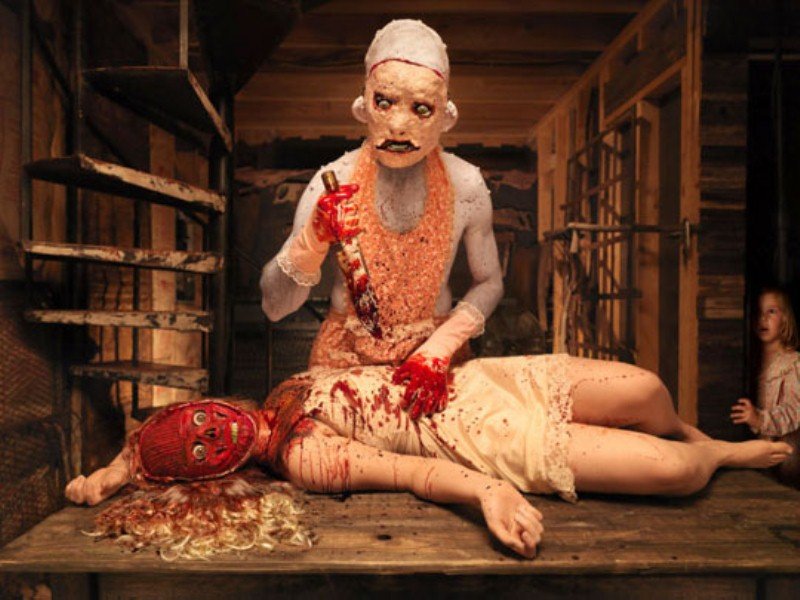Afghanistan –
Pioneering Afghanistan’s rock scene is Kabul Dreams, a band dedicated to pushing cultural boundaries in the country. Currently in the studio recording their new Dari single, they took some time off to indulge us in a thoroughly engaging conversation regarding their lives caught in the throes of war and terror, and their music-making process in this social and political context. They share with us the excitement of hosting Afghanistan’s first street rock concert and headbanging their way past the restrictions to the milestone recording of their first album Plastic Words. Their optimism about the future of Afghanistani rock music is all too evident.
Emaho : Why did you name your band Kabul Dreams? Tell us about some of your primary musical influences. How did your affinity for indie rock develop?
During the Taliban period I was living in Uzbekistan for some years. I went to music school there and studied music. In my teenage years I was listening to different types of music and one day my friend gave me a CD of the Sex Pistols. I kinda liked the hook and then I found about Nirvana. I really got into post punk and some grunge. After I finished music school, I was planning to make a band and play punk rock. Then I moved back to Kabul. In 2008 I met Siddique and Mushtaba. They were working in a small studio producing pop music and jingles for the local and TV and radio stations. I joined them, worked in the studio. A few months later I told them that I wanna make a band and play something different i.e. rock music. The next day I brought my guitar and we set up the rehearsing room quickly and practiced for two hours. We rehearsed one of my written songs. Since these guys already had a musical background, it was relatively easy for us to hit it off right away. Our first international performance was New Delhi, India, in 2009 at the South Asian Band’s Festival. And it was amazing. At the time, it was almost impossible to play rock music in Kabul and that’s why we named our band Kabul Dreams.
Emaho : Does your band do anything to get pumped up before going on stage?
We don’t do anything special before the show. One of the things that gives us positive energy before a show is observing the audience from backstage. You get so happy and feel so cool that these people have come to listen to your music. You dig the support.
Streetplay Concert © Kabul Dreams
Emaho : Where do you draw your inspiration from: traditions, people, places, other artists, experiences, or memories? What do you sing about in your songs?
We sing about what’s happening in Afghanistan. Since I am the songwriter in the band I write about anything that inspires me, like my personal relationships with different people. One of the inspiring things for me is my city Kabul. Here you can see really interesting things and hear interesting stories. By just listening you realize that people’s problems or issues are absolutely different from each other.
Emaho : What does your song “Good Morning Freedom” mean to you?
The song “Good Morning Freedom” describes our own life and what we want it to be. But because of the chaos in our country, it’s not always as we want it. You wish, you plan, you always dream about a storm that can change everything in one go. But it doesn’t happen like that. You try again, even though you know you might not get there. In the painting in your head you can draw everything as perfect. But when it comes to real life it’s different.
I think it’s about challenging your own self. You don’t want to accept defeat; you have move ahead if you want to win.
Emaho : Why did you decide to sing in English on the new album “Plastic Words”?
Our official languages are Dari/Persian and Pashto. We sing in Dari and English. Nowadays, we are working on a new track in Pashto, which is one of the official languages of our country.
The reason why our album “Plastic Words” is in English is because we want to promote it worldwide. We want people to understand our message all over the world. Beside Afghanistan, we want to create an international fan base. The album is available worldwide. People can download it in digital format and buy physical copies, both on iTunes and Amazon.

© Ahmad Reshad
Emaho : How has your music been received in Afghanistan?
In the beginning it was really difficult to explain to people what we play and why we play this type of music. Since we are the first rock band in the country, we were the ones who needed to create the scene and make a fan base. For that we worked really hard.
But now our home fan base is quite awesome. We’ve been doing regular shows for more than four years; people are familiar with our music. They even sing our songs with us in our concerts.
I remember the first time we performed in Kabul in a small tent for around 50 people. We were extremely scared but at the same time very excited. But the reaction of people was actually better than we expected. After the show some people came up and asked questions about the style of music we play. They shared their experience of the show. We found that interesting. Some members of the audience are really into rock and roll while for others it’s a completely new thing.
Emaho : What sort of reaction do you get when you travel abroad and introduce yourselves as an Afghan rock band to foreigners?
We had quite a lot concerts and performances at music festivals in south and central Asia, Europe and some other countries. The reactions of the people went beyond our expectations. I think it’s because they are quite familiar with this type of music. For them this is something new to see – a band from Afghanistan playing post punk or grunge.

© Mikael Thorson
Emaho : What challenges do you face as a rock band in Afghanistan? What’s your hope for the future of the Afghani music scene?
I am positive about the future of modern music in Afghanistan. New bands have come up and they are trying to play the type of music they want to, which is so important. Despite the chaos and all that’s happening in our country, youngsters are still interested in art. If we compare our current situation with 4 or 5 years back, you can see youth learning musical instruments or taking drawing classes or doing other social activities.
Emaho : If you could perform anywhere, where would you most like to hold a concert?
I would like to perform in downtown Kabul in the open air for thousands of people. Two years ago we did a street concert and it was the first street rock concert in the country’s history. Before the concert we were scared how people would react. But when we started performing people came down and listened to our music. Since then I’ve had this dream, like: Hey, we did a small street show and it went well, maybe we can do bigger shows in the future!
Art & Culture Interviewed by Aditi
Feature Image © Numan Qardash
